Alistair Carmichael leak denial was an 'untruth'
- Published
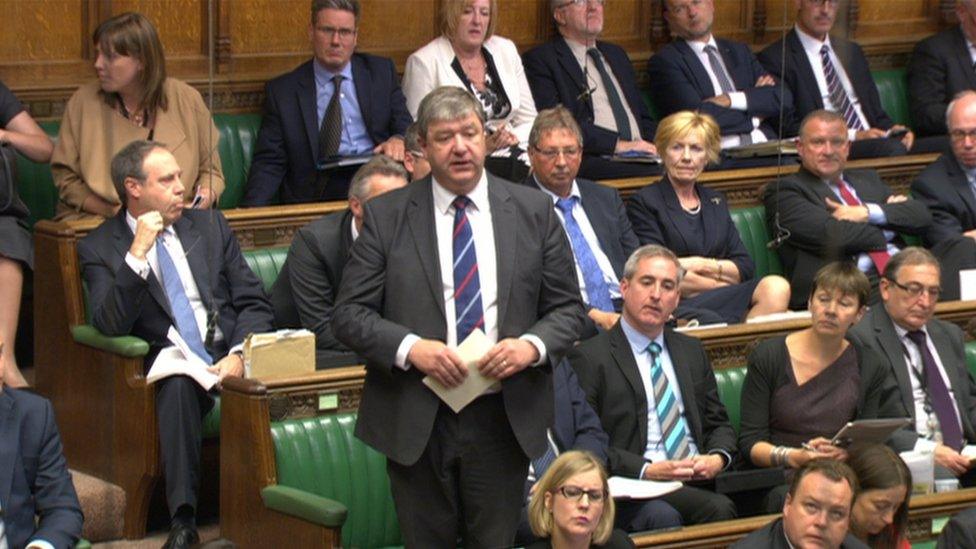
Mr Carmichael was not in court for the hearing
A legal challenge to the election of Liberal Democrat MP Alistair Carmichael has been told his denial of a leaked memo was important.
At a special election court, Jonathan Mitchell QC claimed Mr Carmichael told an "untruth" when he denied knowing about the memo.
The QC said: "This is fundamental, dishonourable conduct."
After two days of evidence, judge Lady Paton said there would be a written judgement in due course.
The case, believed to be the first of its kind in Scotland for 50 years, was adjourned until then.
It had been brought by four of the Orkney and Shetland MP's constituents under the Representation of the People Act.
They claimed Mr Carmichael authorised the leaked memo in order to influence the outcome of May's vote.
It arose from a story in the Daily Telegraph at the start of the general election campaign in April.
Mr Carmichael - Scottish Secretary in the Tory-Lib Dem coalition before the election - had authorised the leaking of a civil service memo suggesting Scotland's First Minister Nicola Sturgeon had told the French ambassador she backed Tory PM David Cameron to remain in Downing Street.
Throughout the election campaign, Mr Carmichael denied leaking the confidential memo to the Daily Telegraph, external.
He claimed in a TV interview the first he had heard of it was when he received a phone call from a journalist.
However, the MP later admitted full responsibility for sanctioning its release, and accepted the "details of the account are not correct".

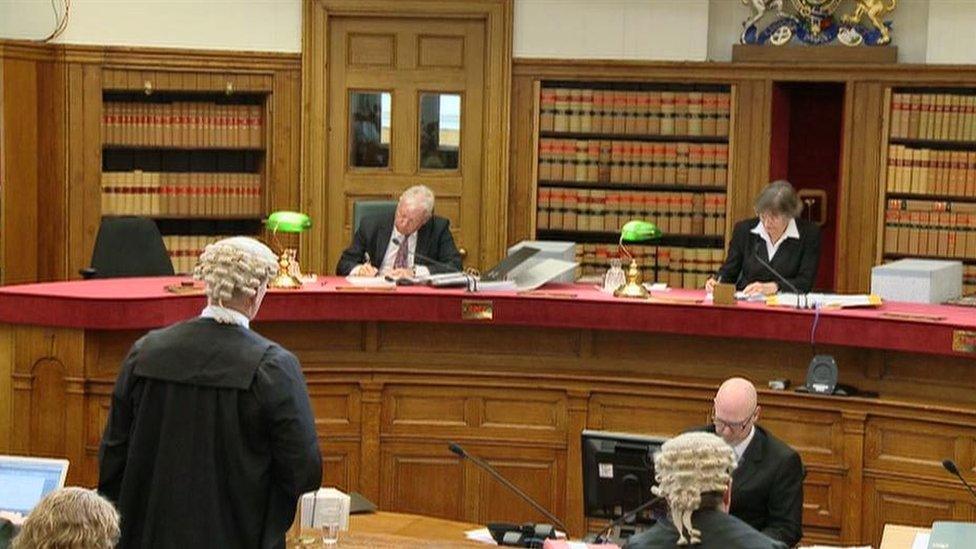
Why the Carmichael case was actually riveting TV
By Philip Sim
A broadcast coming live from inside a Scottish courtroom is rare spectacle indeed - but as one online commentator noted, it was hardly an episode of Judge Judy.
There were no sweaty-palmed witnesses, no terse cross-examination, no bewigged lawyers shouted "objection" or paced up and down before a jury.
Even Alistair Carmichael himself wasn't there, leaving matters in the hands of Roddy Dunlop QC while he was at Westminster, carrying on the day job some of his constituents want to see him ejected from.
An initial outburst of enthusiasm and interest on social media turned to bemusement in some quarters as legal precedent from 1886 was cited and minutes of Victorian-era standing committees were pored over.
"Somebody set off the fire alarm," one tweeter implored.
But do not be fooled by the seemingly dull, dry exterior, this was an important moment, made up of important debate.

The constituents who brought the petition, Timothy Morrison, Phemie Matheson, Fiona Grahame and Carolyn Welling, all of Orkney, were aided by crowd funding.
They maintain that Mr Carmichael's statement on when he first became aware of the leak of the memo took place before the election and was untruthful.
Under the Act, for a candidate to break the law they must make a "false statement of fact" with regard to the personal character or conduct of a candidate before or during an election for the purpose of affecting votes.
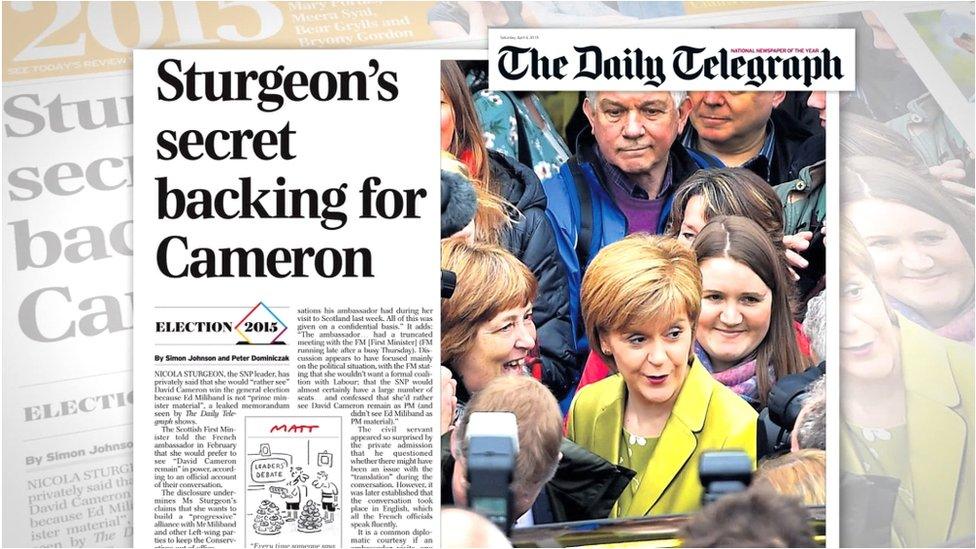
The case centres around this Daily Telegraph article from April which Mr Carmichael leaked to the paper and admits was not correct
Mr Mitchell, representing the petitioners, said that the actual leaking of the memo did not breach electoral laws.
But he said it was Mr Carmichael's subsequent denial of not knowing anything until a journalist had made him aware of the leak that had broken electoral law.
He added: "The false statement is his denial."
Mr Mitchell said even if the leaked memo was entirely accurate, the denial of awareness of the leak would remain.
The QC said the betrayal of confidence and betrayal of secrets was essentially personal, even if driven by political motive, and would therefore be covered by the Act.
He has already told the court that his clients believed that Mr Carmichael leaked the information to deliberately smear the SNP and thus was for the purpose of affecting votes.
Roddy Dunlop QC, for Mr Carmichael, had earlier asked judges at the Court of Session to dismiss the case at the start of the hearing on Monday.
He told the specially-convened election court that the petition was "irrelevant" and "bound to fail".
- Published8 September 2015

- Published7 September 2015
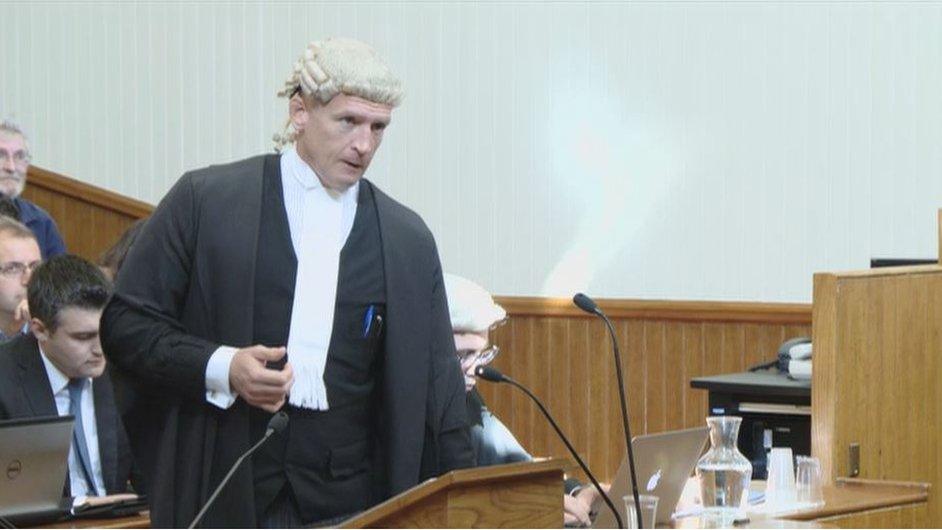
- Published7 September 2015

- Published1 September 2015
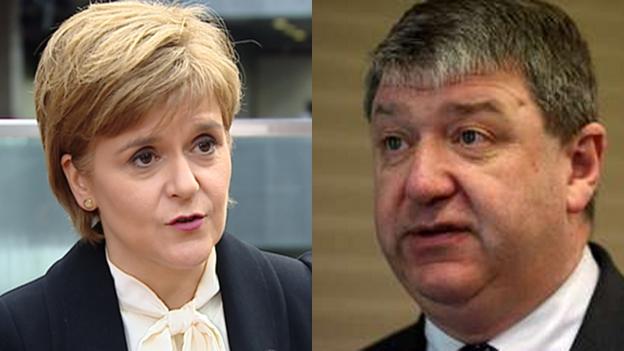
- Published21 August 2015

- Published8 July 2015

- Published6 July 2015

- Published2 July 2015
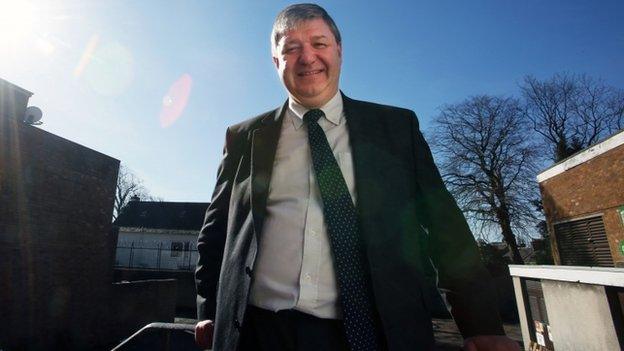
- Published29 May 2015
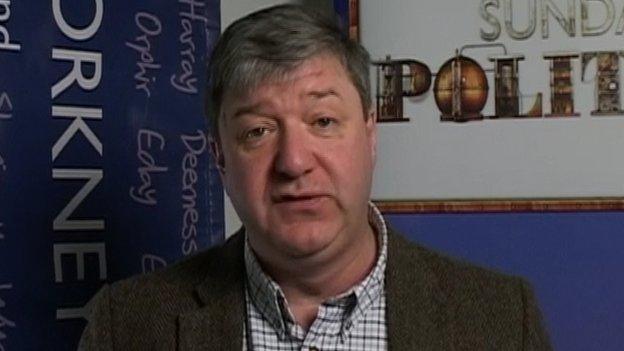
- Published22 May 2015
